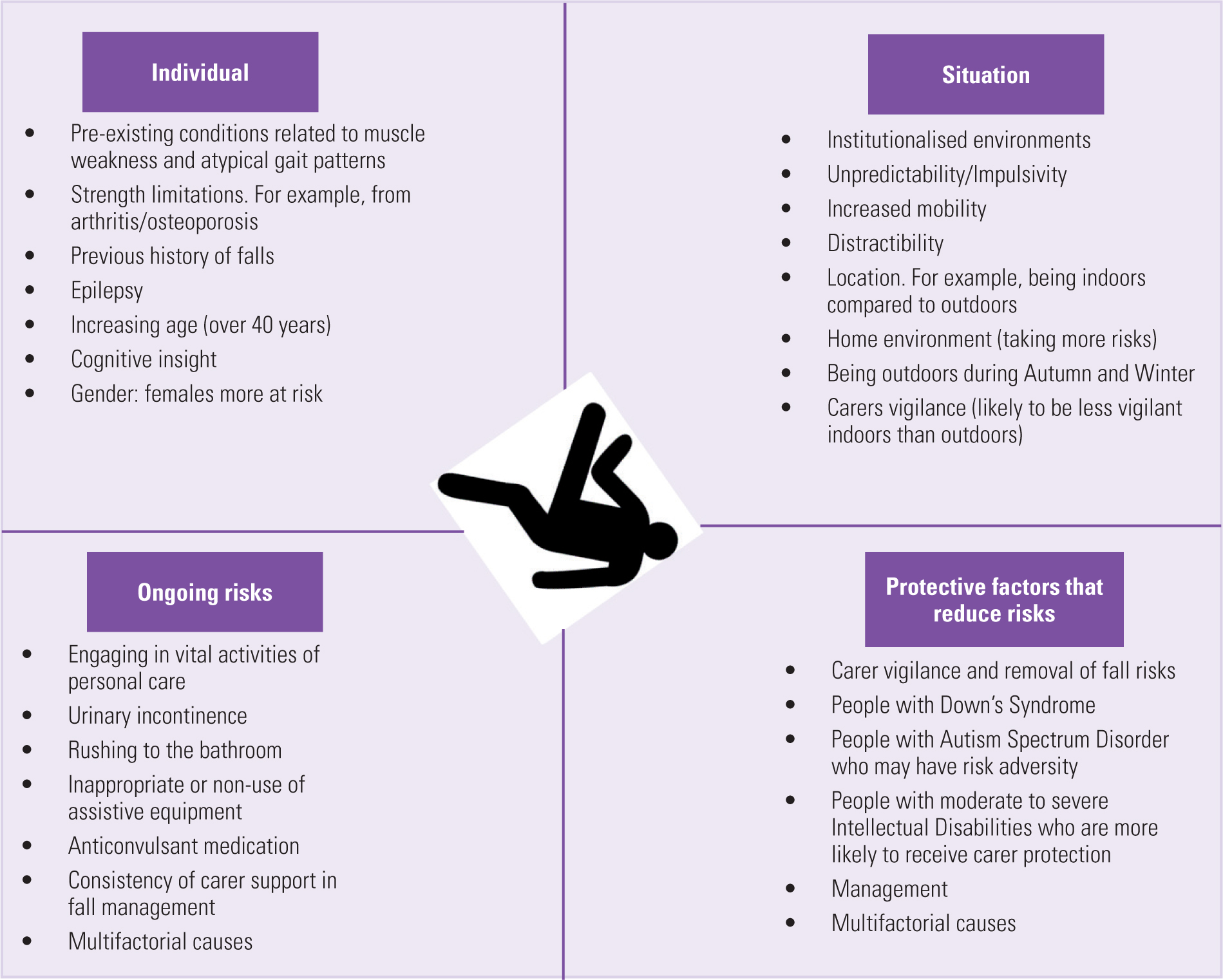See This Report about Dementia Fall Risk
Table of ContentsRumored Buzz on Dementia Fall RiskThe 30-Second Trick For Dementia Fall RiskDementia Fall Risk - The FactsDementia Fall Risk Fundamentals Explained5 Simple Techniques For Dementia Fall Risk
Assessing fall threat aids the whole health care team develop a more secure atmosphere for every patient. Ensure that there is a designated location in your clinical charting system where personnel can document/reference scores and document appropriate notes associated with fall avoidance. The Johns Hopkins Autumn Risk Analysis Device is one of many devices your personnel can use to aid prevent adverse clinical events.Patient drops in healthcare facilities are typical and debilitating damaging events that linger in spite of years of effort to minimize them. Improving interaction throughout the evaluating registered nurse, care team, person, and individual's most entailed loved ones might strengthen autumn avoidance initiatives. A team at Brigham and Female's Healthcare facility in Boston, Massachusetts, looked for to establish a standard fall prevention program that focused around improved communication and person and family interaction.

The development group emphasized that successful execution depends on individual and team buy-in, combination of the program right into existing operations, and fidelity to program processes. The group kept in mind that they are grappling with exactly how to ensure continuity in program application throughout durations of crisis. During the COVID-19 pandemic, as an example, a rise in inpatient falls was related to restrictions in person engagement together with limitations on visitation.
Some Known Details About Dementia Fall Risk
These incidents are generally taken into consideration avoidable. To implement the intervention, organizations need the following: Access to Fall ideas resources Fall TIPS training and re-training for nursing and non-nursing team, consisting of brand-new registered nurses Nursing operations that permit for person and family members involvement to perform the drops evaluation, make sure usage of the avoidance plan, and conduct patient-level audits.
The results can be extremely damaging, often accelerating patient decline and causing longer medical facility stays. One research approximated keeps raised an added 12 in-patient days after a person loss. The Loss TIPS Program is based upon appealing clients and their family/loved ones across three main processes: analysis, customized preventative treatments, and auditing to ensure that people are engaged in the three-step fall avoidance process.
The person evaluation is based upon the Morse Loss Range, which is a validated loss risk analysis tool for in-patient hospital setups. The scale consists of the six most typical factors clients in medical facilities drop: the client fall history, risky conditions (consisting of polypharmacy), use IVs and other exterior gadgets, psychological status, stride, and movement.
Each threat factor web links with one or more workable evidence-based interventions. The registered nurse produces a strategy that incorporates the treatments and is visible to the treatment team, individual, and family members on a laminated poster or printed aesthetic aid. Nurses develop the strategy while satisfying with the person and the individual's blog family.
The Definitive Guide for Dementia Fall Risk
The poster acts as an interaction device with various other participants of the individual's care team. Dementia Fall Risk. The audit component of the program includes assessing the patient's understanding of their threat elements and prevention plan at the unit and healthcare facility levels. Nurse champs perform a minimum of five individual meetings a month with individuals and their households to look for understanding of the fall avoidance strategy

An estimated 30% of these falls lead to injuries, which can range in seriousness. Unlike various other damaging events that require a standardized scientific response, autumn prevention depends highly on the demands of the individual. Including the input of individuals that know the patient best permits higher personalization. This approach has actually shown to be more reliable than autumn avoidance programs that are based mostly on the production of a threat score and/or are over at this website not personalized.
A Biased View of Dementia Fall Risk

Based upon auditing outcomes, one website had 86% compliance and 2 sites had more than 95% compliance. A cost-benefit evaluation of the Autumn pointers program in eight hospitals approximated that the program expense $0.88 per person to carry out and resulted in savings of $8,500 per 1000 patient-days in direct prices connected to the prevention of 567 tips over 3 years and eight months.
According to the advancement group, organizations thinking about implementing the program must perform a preparedness assessment and drops avoidance spaces evaluation. 8 Additionally, companies must ensure the needed framework and workflows for execution and develop an application plan. If one exists, the company's Fall Avoidance Task Pressure ought to be involved in preparation.
Indicators on Dementia Fall Risk You Should Know
To begin, organizations ought to guarantee conclusion of training components by registered nurses and nursing aides - Dementia Fall Risk. Hospital staff should evaluate, based on the requirements of a healthcare facility, whether to useful content utilize a digital health and wellness record printout or paper variation of the autumn prevention plan. Implementing groups need to hire and train registered nurse champions and establish processes for auditing and reporting on loss data
Team need to be associated with the procedure of revamping the workflow to involve individuals and family members in the evaluation and avoidance strategy process. Equipment must be in location so that devices can comprehend why a loss happened and remediate the reason. Much more especially, nurses should have channels to provide continuous feedback to both personnel and unit management so they can adjust and enhance autumn avoidance process and communicate systemic issues.